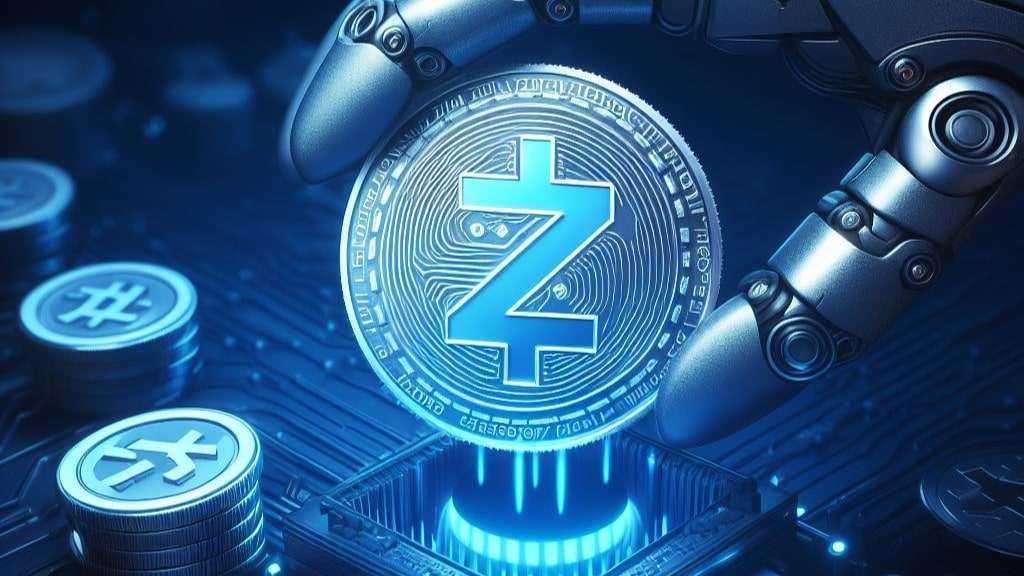
In recent times, the cryptocurrency community has been buzzing with concerns related to the security of privacy-focused cryptocurrencies, with a particular focus on ZCash (ZEC). These concerns have emerged due to the dominance of a single mining pool, ViaBTC, which now controls more than 51% of ZCash’s hashing power. This development has ignited discussions about the potential security risks associated with such concentrated mining power and the broader implications for privacy coins in the crypto market.
The Risks of a 51% Attack on ZCash
Privacy-focused cryptocurrencies like ZCash and Bitcoin rely on a Proof-of-Work (PoW) consensus mechanism, where miners play a pivotal role in validating transactions and adding new blocks to the blockchain. Miners commit their computational resources, measured in hashrates, to solve complex cryptographic puzzles. The combined hash power of all active miners ensures the security and decentralization of the blockchain.
The primary concern when a single entity, like ViaBTC in this case, controls over 50% of the network’s hash power is the possibility of a 51% attack. In such an attack, malicious actors with majority control could manipulate transactions, potentially reversing them or engaging in double-spending schemes.
ViaBTC has acknowledged the apprehension surrounding the concentration of ZCash’s hash rate within its mining pool. However, they emphasize that the hash rates connected to their platform are owned by individual participants, and they view themselves as temporary hosts for these resources. ViaBTC underscores their commitment to user choice, affirming that ZCash miners are free to join or switch to any mining pool of their preference.
Addressing the fears of a 51% attack, ViaBTC asserts that they lack both the motivation and the capability to orchestrate such an attack. While these statements offer some reassurance, the concentration of mining power within a single pool remains a contentious issue in the cryptocurrency space.
The Future of Privacy Coins
Privacy coins, including ZCash, Monero, and Dash, offer distinctive advantages by prioritizing transaction privacy. They cater to users who value confidentiality and anonymity in their financial transactions. However, the recent concerns surrounding ZCash highlight the ongoing need for development and enhanced security measures within the privacy coin ecosystem.
As the cryptocurrency industry continues to evolve, regulatory scrutiny of privacy coins has increased worldwide. This has led to exchanges either delisting these coins or imposing stricter listing requirements, posing challenges to their broader adoption.
Despite these challenges, privacy coins have a well-defined place in the future of cryptocurrency. This is particularly notable in countries like Canada, where interest in Central Bank Digital Currencies (CBDCs) has waned. Furthermore, innovations such as ZCash’s shielded transactions and Monero’s ring signatures are continuously evolving, enhancing privacy features while also addressing regulatory concerns.
Mining Pools and Their Role
To understand the dynamics at play, it’s crucial to grasp the concept of mining pools. Mining, especially for cryptocurrencies like ZCash and Bitcoin, is a resource-intensive process that demands significant computational power. Mining pools are essentially collaborations among individual miners who combine their resources and share the rewards based on their contributed computational power.
Mining pools provide smaller miners with a more consistent income stream by allowing them to participate in the mining process without having to compete against massive mining operations. These pools are an integral part of the cryptocurrency ecosystem, contributing to the security and stability of blockchain networks.
However, the concentration of mining power within a single pool, as seen with ViaBTC and ZCash, raises concerns. When one pool gains majority control, it has the potential to manipulate transactions, undermining the trust and security of the entire network. This is what is commonly referred to as a 51% attack, where the malicious entity can double-spend coins and disrupt the normal functioning of the blockchain.
ViaBTC’s Response and Reassurances
ViaBTC, in response to the worries about its dominance in ZCash mining, has sought to address the community’s concerns. They emphasize that their control over ZCash’s hash rate is not direct, as the hash rates connected to their platform are owned by individual participants in their pool. ViaBTC sees itself as a facilitator rather than a controlling entity.
Moreover, ViaBTC highlights its commitment to user choice and the rights of ZCash miners to make decisions regarding their mining pool affiliation. They assure miners that they are free to join ViaBTC’s pool or switch to another pool at any time without restrictions.
In an effort to allay fears of a 51% attack, ViaBTC has stated that they lack both the motivation and the means to gather hash rates for such an attack. While these assurances provide some comfort, the fact that a single pool has such significant influence over a cryptocurrency network’s hash rate remains a topic of debate and concern within the crypto community.
The Broader Implications for Privacy Coins
The challenges and uncertainties surrounding ZCash’s hash power dominance have broader implications for the entire landscape of privacy coins. These digital assets have garnered attention for their unique features, which prioritize the privacy and anonymity of users’ financial transactions.
However, regulators in various parts of the world have been increasingly focused on privacy coins, citing concerns related to their potential misuse for illegal activities. This regulatory scrutiny has led to actions such as the delisting of privacy coins from certain cryptocurrency exchanges or the imposition of stricter listing requirements.
Despite these hurdles, privacy coins continue to hold relevance and value in the crypto market. In some countries, such as Canada, where interest in Central Bank Digital Currencies (CBDCs) has waned, privacy coins offer an alternative means of transacting privately.
Innovation within the privacy coin space has also been ongoing. ZCash, for instance, introduced shielded transactions, which provide enhanced privacy by concealing transaction details. Similarly, Monero has continued to refine its ring signatures, further bolstering transaction privacy.
Conclusion
The concerns surrounding ViaBTC’s dominance in ZCash mining power highlight the delicate balance between security and decentralization in the cryptocurrency world. While mining pools play a crucial role in facilitating small-scale mining participation, their concentration can pose significant risks to the integrity of blockchain networks.
As the crypto industry continues to mature and regulatory scrutiny intensifies, privacy coins like ZCash will face ongoing challenges. However, their commitment to transaction privacy and ongoing innovations suggest that they will remain a vital part of the evolving crypto landscape.
The story of ViaBTC and ZCash serves as a reminder of the importance of vigilance in maintaining the principles of decentralization and security upon which cryptocurrencies were founded. The crypto community will undoubtedly continue to closely monitor developments in this space as it navigates the ever-changing crypto landscape.



Get the latest Crypto & Blockchain News in your inbox.